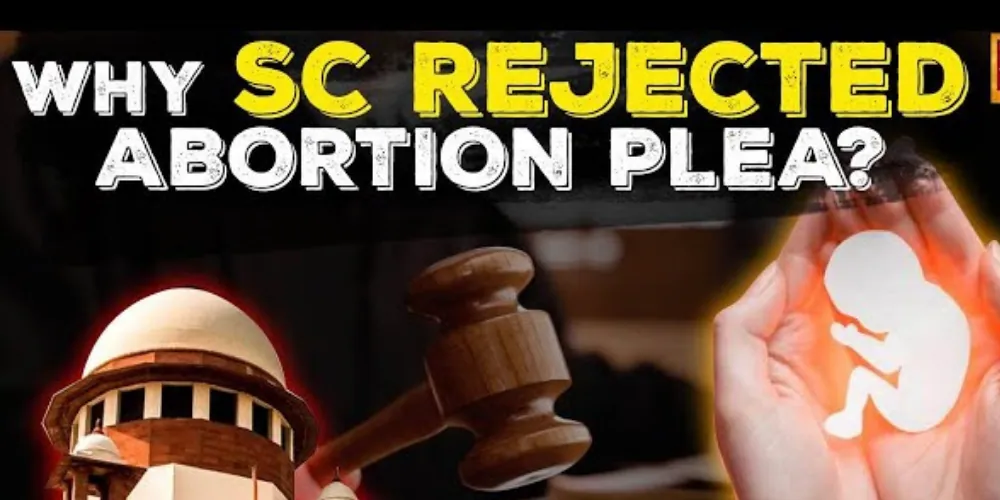In a recent development in New Delhi, the Supreme Court declined a married woman’s request to terminate her pregnancy, which had exceeded 26 weeks. The decision was based on the health of the foetus, which was found to be healthy by an AIIMS medical board, with no abnormalities detected.

Chief Justice D.Y. Chandrachud, heading the bench, explained that the pregnancy had crossed the 24-week upper limit for medical termination of pregnancy (MTP) and, therefore, could not be permitted. The court noted that the foetus was 26 weeks and five days old and that there was no immediate threat to the mother, nor were there any foetal abnormalities.
The court underlined that terminating the pregnancy at this stage could result in a viable foetus, potentially facing lifelong physical and mental disabilities. The All India Institute of Medical Sciences (AIIMS) would conduct the delivery at an appropriate time, and the Union government had committed to covering all medical expenses.
The court also mentioned that if the petitioner decided to give the child up for adoption, the Union government would ensure a smooth and expedited process. However, the decision of whether to give the child up for adoption remained entirely with the parents.
The Supreme Court clarified that the challenge to pregnancy termination laws would be addressed separately, focusing on the specific case between the petitioner and the state. The case revolved around the woman’s condition and her request for pregnancy termination due to post-partum psychosis following the birth of her second child.
Under the Medical Termination of Pregnancy (MTP) Act, the upper limit for pregnancy termination is 24 weeks for married women and certain special categories, including survivors of rape and other vulnerable women such as those with disabilities and minors.
The court faced a complex ethical dilemma involving the rights of the unborn child and a woman’s right to bodily autonomy. This issue emerged following a report from one of the AIIMS medical board doctors, which suggested a strong possibility of the foetus’s survival despite the advanced stage of pregnancy.

